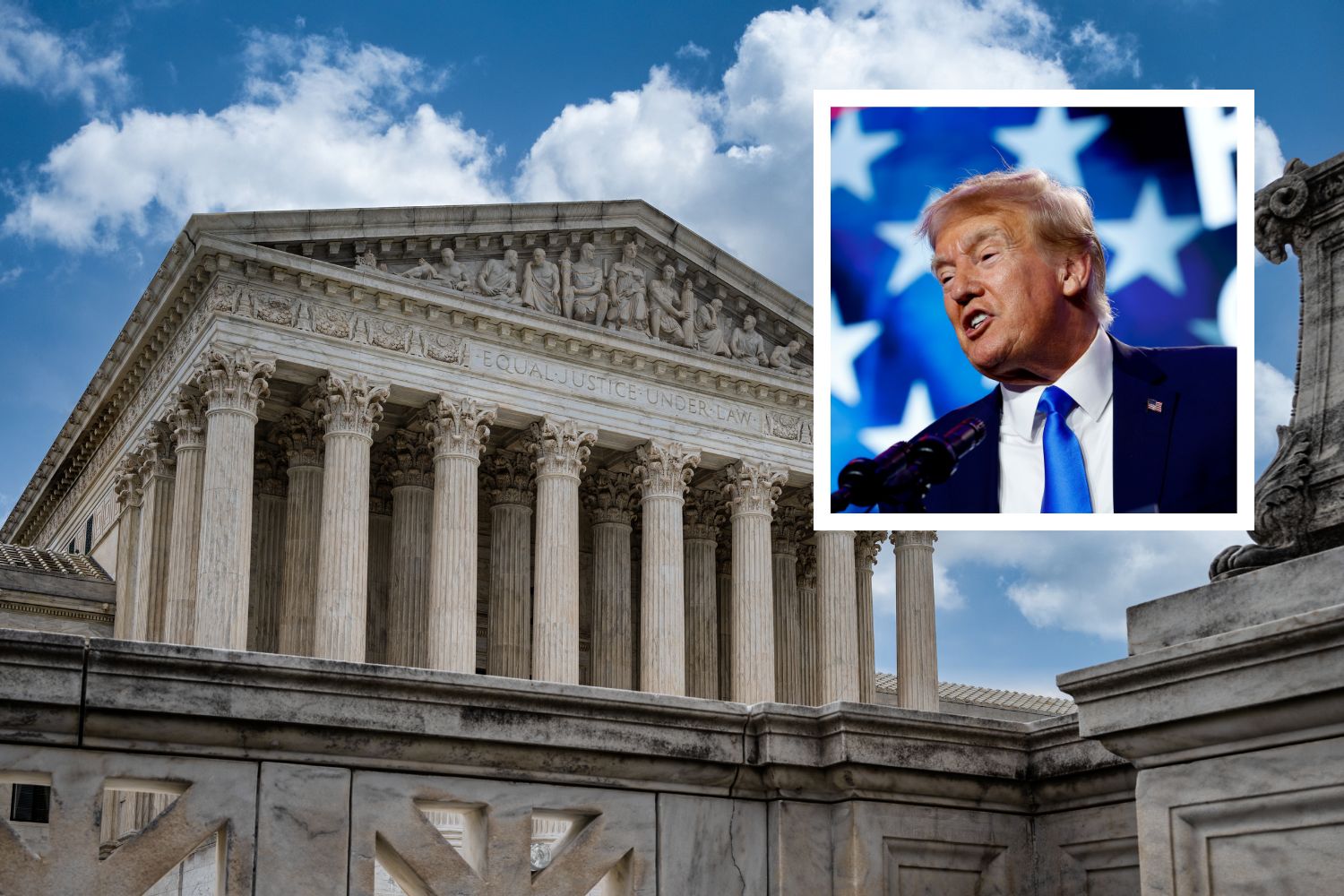Former President Donald Trump’s decision to run in 2024 has put the Supreme Court in a difficult position, and several experts weighed in on the matter with Newsweek.
A case challenging Trump’s candidacy under the 14th Amendment’s disqualification clause is heading to next week’s judicial conference, and legal analysts say it could put the high court in a tough spot to weigh in on electoral politics—a subject matter the Supreme Court has, for the most part, stayed away from.
In a lawsuit filed earlier this month, long-shot GOP presidential candidate John Castro is arguing that Trump’s allegedly unconstitutional candidacy will cause him “a political competitive injury in the form a diminution of votes.” Under the 14th Amendment, individuals who have “engaged in insurrection or rebellion” against the U.S. are prohibited from holding public office. Castro claims that Trump’s role in the January 6, 2021, Capitol riot falls under the clause.
“The Trump ballot case may be the Supreme Court’s toughest yet,” former federal prosecutor and president of West Coast Trial Lawyer Neama Rahmani told Newsweek. “Many of Trump’s cases have been unprecedented, but this one more so, because there is so little legal precedent on which to rely on, and most of it dates back to the Civil War.”
“In the unlikely event that the Justices actually disqualify Trump from running for president, that decision may be met with massive protests and civil unrest,” Rahmani said. “They’re going to have to decide for the first time who has standing to bring a 14th Amendment, Section 3 challenge, and whether the provision has any teeth.”
Bruce Peabody, a politics professor at Fairleigh Dickinson University, told Newsweek that while the justices will have to address Trump’s candidacy under the statute at some point, this may not be the case where they’ll rule on the former president’s eligibility to run for the White House.
“[The justices] like to intervene when there’s legal uncertainty surrounding an issue, especially from dueling lower court decisions,” Peabody said. “We don’t have that on the question of Trump’s eligibility, at least not yet. The justices have so many flexible doctrines available to dump this case off their laps, it’s hard to imagine they won’t live to fight another day.”
If the Supreme Court did take up Castro’s case, their decision would be limited to whether or not Castro had standing—whether a plaintiff is the appropriate person to bring a legal challenge or someone who has suffered harm or injury in a real way—rather than Trump’s ability to run for office. If they sided with Castro, the case would be sent back down to the trial courts to hear whether Trump could be barred from running for office.
The Supreme Court will mostly likely proceed with caution since “The Court often deems these disputes ‘political questions’ that do not have any kind of judicially discoverable outcome and instead should be left to the political processes to decide,” Alex Badas, a political scientist focused on judicial politics, said.
“The only way that the Supreme Court would take up one of Castro’s cases is if there is a Circuit split,” he told Newsweek.
Although Castro has filed multiple lawsuits across different jurisdictions in at least 14 states, Badas said it would be unlikely for any of them to result in a circuit split where one or more appeals court offers conflicting decisions on the same legal issue.
Constitutional lawyer Kent Greenfield agreed, pointing out that the Supreme Court will likely wait to see what lower courts do since the only ruling on any 14th Amendment case, has answered the question about whether the lawsuits have standing.
Greenfield told Newsweek he would be “shocked” if the justices granted standing on the case.
“There are several other serious cases in the lower courts—most notably the one filed recently in Colorado, using circuit precedent written by Gorsuch when he was on the circuit court,” he said. “I think the Court will wait to see what the lower courts do and will only wade into this serious and divisive issue if there is a split among the circuits. Or, if we get to the spring and there is an important primary state in which Trump has been taken off the ballot, I could imagine the Court stepping in at that point.”
“Either way, we have some months before the Court gets involved. We will need to watch what happens in the lower courts,” Greenfield said.



It’s not difficult at all if the courts were indifferent. We now know they are not.
deleted by creator